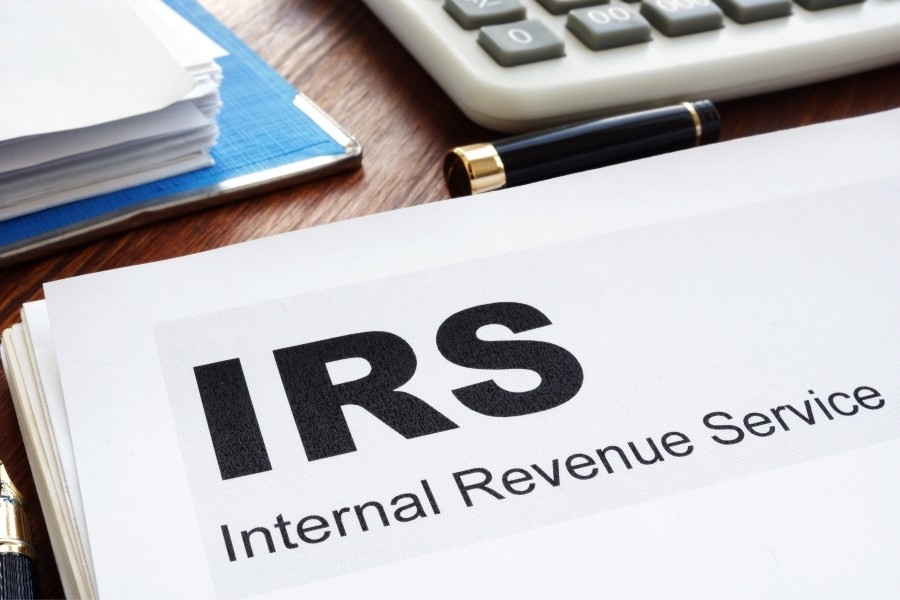What is a federal tax lien?
When a federal tax bill goes unpaid, the government imposes – a penalty – or lien- against certain property and property rights.

In general, a tax lien serves to guarantee the payment of a debt. For IRS purposes, the taxable property includes but is not limited to income taxes, gift taxes, and estate taxes. If the obligation is not satisfied, the creditor – in this case the federal government – may proceed to seize the assets. The amount owed accrues in the form of interest on the original amount owed and on any additional costs that may apply, and once a tax lien is assessed, the lien is also applied to property acquired subsequent to the date of the assessment.
Related Articles
- Form 1040-EZ vs 1040A vs Form 1040
- An Overview of Single Parents Tax Credit
- Do I Qualify for Earned Income Tax Credit?
What Happens if I Don’t Pay
When a federal tax bill goes unpaid, the government imposes – a penalty – or lien- against certain property and property rights.
In general, a lien serves to guarantee the payment of a debt. For IRS purposes, the taxable property includes but is not limited to income taxes, gift taxes, and estate taxes. If the obligation is not satisfied, the creditor – in this case the federal government – may proceed to seize the assets. The amount owed accrues in the form of interest on the original amount owed and on any additional costs that may apply, and once a tax lien is assessed, the lien is also applied to property acquired subsequent to the date of the assessment.
Payment of the tax liability will end the lien because the liability will no longer exist.
A federal tax lien has precedence over all other creditors’ claims while state and local taxes are wiped out by bankruptcy proceedings, this does not include federal tax debt. The federal tax lien ensures that the tax authority gets the first to claim over any other creditors vying for the creditor’s assets.

A Notice of Federal Tax Lien alerts creditors that the IRS has a tax lien that may attach to the property of the delinquent taxpayer. The federal tax lien is a “secret lien” – meaning creditors cannot find out about it until the IRS files a Notice of Federal Tax Lien. When the IRS files a Notice of Federal Tax Lien, it puts creditors and everyone else on notice that the IRS has, or may have, a federal tax lien. The IRS may not actually file a Notice of Federal Tax Lien. In most cases, the IRS will not file a Notice of Federal Tax Lien if the unpaid tax liability is less than $10,000. This does not relieve the taxpayer from the responsibilities and penalties of the lien.
Once a lien has been filed, it will show up on the taxpayer’s credit report, damaging the person’s credit score and thus making it difficult for the taxpayer to sell the assets or to obtain credit. This also prevents the taxpayer from selling or refinancing any assets to which liens have been attached.
The first step to IRS collection is an assessment. An assessment is the process of the IRS recording tax that is owed. Assessments may be based on income tax returns, IRS audits, Tax Court decisions, or an IRS determination that a math error has been made by the taxpayer.
Once the IRS makes an assessment, it must issue a “notice and demand,” which, is simply a bill. The notice and demand inform taxpayers of the assessed taxes and demand payment of the tax liability within 10 days to avoid interest. There is no particular form required for notice and demand. The IRS generally satisfies this requirement with one of its many form letters. The IRS must either leave the notice and demand at the taxpayer’s residence or usual place of business, or mail it to the taxpayer at his or her last known address and must send the notice and demand as soon as practicable, and within 60 days. If, however, the IRS fails to send notice within 60 days, the taxpayer is unlikely to escape the wrath of the tax liability. Why? Because the Treasury Regulation provides that the IRS’s failure to provide notice and demand within the 60-day period does not invalidate the notice.
Once the federal tax lien attaches to the property, the government may seek to claim its interest in the property through a levy, seizure, or foreclosure suit. As mentioned, the federal tax lien is not limited to the value of the property to which it attaches. If the property appreciates, then the IRS’s lien on the property appreciates accordingly. Also, it will follow the property, even if the taxpayer transfers it to a third party unless the taxpayer obtains a release. If the property appreciates, then the IRS’s lien position appreciates as well.
Payment of the tax liability will end the lien because the liability will no longer exist.
The IRS has a 10-year collection statute. Once the 10-year collection statute lapses, the lien is extinguished. However, there are many exceptions that will suspend the 10-year collection statute, including a pending installment agreement, Collection Due Process (CDP) hearing request, pending Offer in Compromise, bankruptcy where an automatic stay is imposed, during an innocent spouse request, when the taxpayer is outside the United States for a continuous period of at least 6 months.
There are certain occasions when the IRS may discharge property from a lien even though it has not been satisfied, for example, when the fair market value of the taxpayer’s remaining property is at least double the sum of the tax liability and all other liens.
There are other situations and steps that can be taken to mitigate or wipe away federal tax liens. Marcus, Fairall Bristol + Co.’s tax experts will counsel the taxpayer on these options, taking into account the individual’s position.
Get Your Tax and Accounting Questions Answered by Our CPA Firm in El Paso, TX
If you’re looking for a reputable CPA firm in El Paso, TX consider calling us at Marcus, Fairall, Bristol + Co., PLLC! We’ll answer any and all of your accounting-related questions such as IRS issues. We offer our clients a variety of accounting services such as the following:
- Forensic Accounting
- Tax Problems and Resolution
- Tax Planning for Individuals
- Small Business Accounting
- Non-Profit Accounting
Marcus, Fairall, Bristol + Co., PLLC
230 Thunderbird Dr Ste G, El Paso, TX 79912
Phone: (915) 775-1040
info@marcfair.com